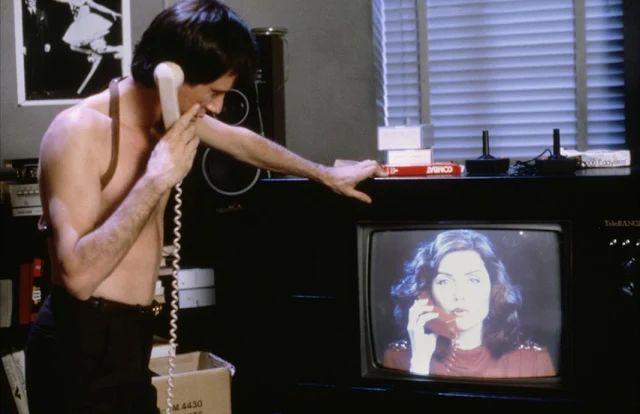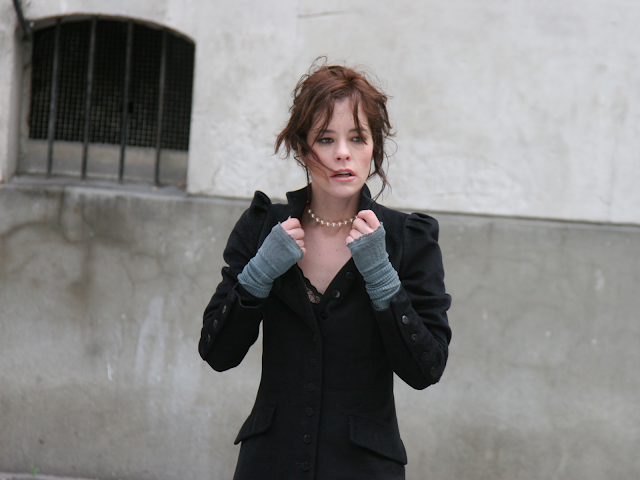 |
| Christopher Walken in Brainstorm |
Cast: Christopher Walken, Natalie Wood, Louise Fletcher, Cliff Robertson, Jordan Christopher, Donald Hotton, Alan Fudge, Joe Dorsey, Bill Morey, Jason Lively, Georgianne Walken. Screenplay: Bruce Joel Rubin, Robert Stitzel, Philip Frank Messina. Cinematography: Richard Yuricich. Production design: John Vallone. Film editing: Freeman A. Davies, Edward Warschilka. Music: James Horner.
Brainstorm is a sci-tech thriller based on a premise familiar to the genre: Brilliant scientists come up with a breakthrough and face the threat that it will be misused by nefarious forces. In older films, the nefarious forces tended to be foreign ones, Nazis or Commies. Today, however, they usually come from our own corporate-military-industrial complex. Working together, Dr. Michael Brace (Christopher Walken) and Dr. Lillian Reynolds (Louise Fletcher) have created a way to transmit the brainwaves of one person to another, stimulating not only the visual and audible sensations but also the bodily ones -- respiratory, muscular, etc. The transmissions can also be recorded and stored. It's virtual reality gone whole hog, especially after Brace's wife, Karen (Natalie Wood), an industrial designer, comes up with a snazzy little headset. Brace and Reynolds are hopeful for all sorts of peaceful uses of the technology, but to get funding for it, they have to agree with the head of the corporation for which they work, Alex Terson (Cliff Robertson), that it can be shown to investors. And you know who has the money to fund such a project. The inventors are dismayed at the prospect of misuse, but they put up with it until the real dangers of the invention show up. A researcher records himself having an orgasm and gives it to another man who plays it on a loop, sending himself into a coma from the experience. And then Reynolds herself, a chain smoker, has a heart attack and dies, but not before hauling herself to the device and recording the experience. Brace discovers the tape and almost dies playing it before he's able to disconnect. Finding that the company has kept the tape and has actually killed someone with it and is experimenting with other malign uses for the technology, Brace and Karen team up to find ways to stop it. It's a worthy premise, but Trumbull, a noted special effects director making his first (and only) feature in the director's chair, encountered a perfect storm of difficulties, the chief of which was Natalie Wood's death in 1981. Wood's major scenes in Brainstorm had already been filmed, but MGM, which was in financial difficulties, pulled the plug on the project. Fortunately, the production was insured by Lloyd's of London, which stepped in and allowed Trumbull to complete the movie. Wood's sister, Lana, doubled for her in the remaining scenes. Still, Brainstorm was not a critical or commercial success. There's a funny sequence in which Brace causes the robots on the assembly line to go haywire, and Fletcher's performance is great. Wood is fine, but Walken, a specialist in offbeat characters, seems miscast. The subplot, which involves the Braces using the technology to communicate their feelings to each other and repair their fraying marriage, is tedious and sentimental. And the concluding sequence, in which we find out what Reynolds saw when she was dying, is almost inevitably a letdown.




























